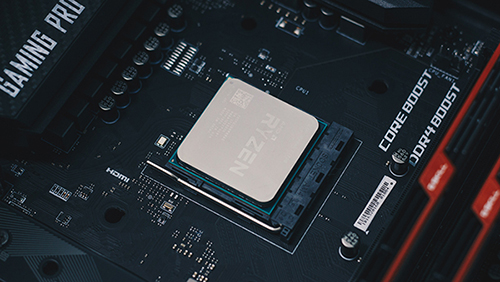 HOME > Industry > The EU has set up a semiconductor alliance to replace foreign-funded fabs, and four enterprises, including STMicroelectronics, ASML, ST, NXP and Infineon, have joined
HOME > Industry > The EU has set up a semiconductor alliance to replace foreign-funded fabs, and four enterprises, including STMicroelectronics, ASML, ST, NXP and Infineon, have joinedThe EU has set up a semiconductor alliance to replace foreign-funded fabs, and four enterprises, including STMicroelectronics, ASML, ST, NXP and Infineon, have joined

Twenty-two EU member states have joined forces to form a new semiconductor alliance to support semiconductor research and manufacturing in Europe and reduce the EU's dependence on suppliers from other countries, EU internal market commissioner Thierry Breton said yesterday.
As countries around the world move towards greater autonomy of their semiconductor supply chains, the EU is planning to launch the IPCEI (Important European Common Interest Programme), which will allow EU governments to inject capital under looser state aid rules and companies to co-operate on the whole programme. In addition to the 22 members, the new semiconductor alliance members include STMicroelectronics (STMicroelectronics), ASML, NXP (NXP), Infineon.
The plan aims to double the EU's semiconductor market share to 20 percent by 2030, said Thierry Breton, the EU's internal market commissioner.
Thierry Breton also said: "We hope to bring together the business community and member states within the framework of the European Semiconductor Union to kick-start the necessary investments."
Thierry Breton added that the EU would welcome partnerships with foreign manufacturers as long as Europe remained "dominant".
In addition, Thierry Breton will hold a video conference today with Intel CEO Pat Gelsinger and TSMC Europe General Manager Maria Marced to further discuss the possibility of the two companies setting up wafers in the European Union, Thierry Breton will also hold talks with Samsung representatives.
Diplomats and Taiwanese officials are understood to have said TSMC was not interested in building a plant in the EU.
At the same time, three EU officials said they were unhappy with the strategy of relying on non-EU companies to build factories, and that co-operation between EU companies and their foreign counterparts might work better.
The report noted that the European semiconductor industry was dwarfed by its Asian rivals and lacked a leading player with the financial wherewith to build new plants.
It is reported that many EU countries, including Germany, France and the Netherlands, plan to spend up to 145 billion euros in the next two to three years to improve the status of EU countries in the global semiconductor industry and establish a complete semiconductor value chain. Sources said the EU plans to spend more than 10 billion euros in subsidies to attract foreign companies to set up factories.
STMicroelectronics and NXP declined to comment. Breton's office, Infineon and ASML did not immediately respond to requests for comment.
Pu Lian technology is a new technology that can be used to create a new quality mesh
 2021-04-30
2021-04-30 Author:Technology
Author:Technology